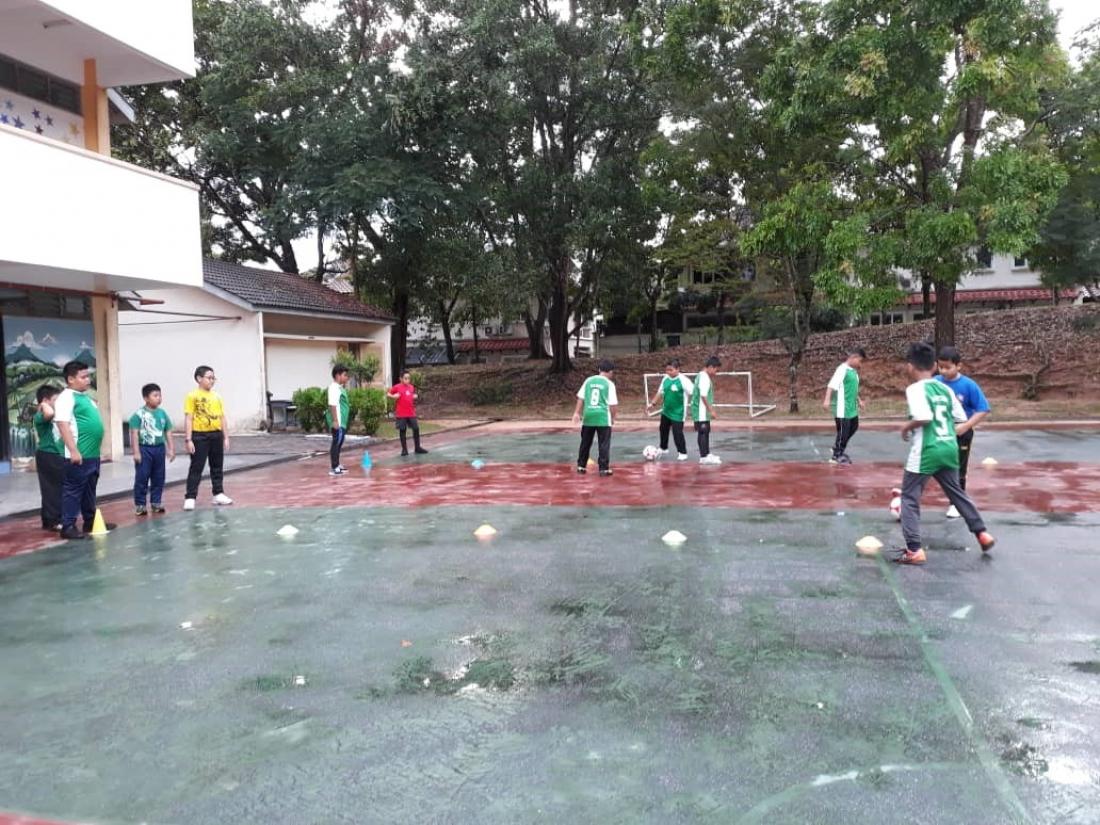Walking football training session among obese school children.
According to the latest statistics from the National Health Morbidity Survey (NHMS 2015), 38% of the children in Malaysia are overweight and more than 7% of children under 5 has been identified as overweight. In the meantime, the obesity rate for population in Malaysia below 18 years old is around 11.9%. Lifestyle changes are an important factor in the management and prevention of childhood obesity. Many researchers globally have come out with various way or method to increase their participation in physical or sports activities. However, access to structured fitness programs for obese children is still limited. As this is still unsolved problem, University of Malaya's researchers found an interesting method to prevent and reduce the occurrence of obesity in children. Walking is the easiest type of physical activity as it is safe and economical. The benefits of walking are also similar to exercise. Furthermore, walking 10,000 steps has been proven to benefit cardiovascular health. Walking football is an interesting sport with good impact on health. Players are only allowed to walk and not run around. Walking football game increases the daily step counts for those who play. As it is a team sport, player usually gets motivation from the teammates. Such good support and encouragement will help players to move more. Consequently, players will improve their fitness level, body composition and thus preventing obesity related complications. This study obtained pilot data on the anthropometrical and fitness level changes exhibited following a 12-week walking football program by primary school children aged 8-12 with BMI more than 21kg/m2 (95th centile). Healthy male school children from 8 schools around Petaling Jaya were recruited for this program. Each school forms 2 teams (6 students per team) and trained together. The training sessions comprised of multiple short 6-a-side semi-structured games (25 mins / session) with a cumulative of 150-minutes session each week. This program lasted for 12 weeks. At the end of 12 weeks, the children participated in an inter-school walking football competition. This study demonstrated positive effects on anthropometrical and fitness changes among the school children who participated in the walking football program. The findings show that walking football is an excellent alternative weight management for obese school children. The cost effectiveness of this activity suggests its feasibility to be implemented nationwide or regionally to combat the rising problems of inactivity and childhood obesity. Furthermore, this low impact sports activity has positive social and motivational factors that may facilitate compliance that help to maintain an active lifestyle among the children. For more information, kindly contact: 1. Dr Haireen Abdul Hadi [email protected] 2. Dr Zulkarnain Jaafar [email protected] 3. Dr Nur Amani Ahmad Tajuddin [email protected] 4. Dr Julia Suhaimi [email protected] Faculty of Medicine, University of Malaya, 50603 Kuala Lumpur, Malaysia



